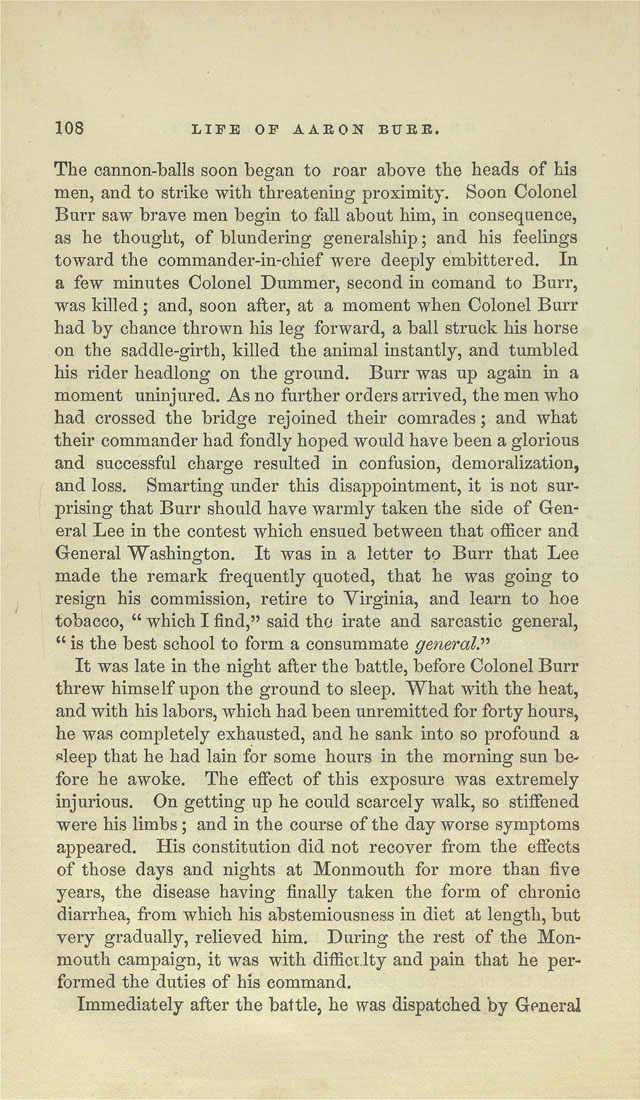108 LIFE OF AAEON BUEE.
The cannon-balls soon began to roar above the heads of his
men, and to strike with threatening proximity. Soon Colonel
Burr saw brave men begin to fall about him, in consequence,
as he thought, of blundering generalship; and his feelings
toward the commander-in-chief were deeply embittered. In
a few minutes Colonel Dummer, second in comand to Burr,
was killed ; and, soon after, at a moment when Colonel Burr
had by chance thrown his leg forward, a ball struck his horse
on the saddle-girth, killed the animal instantly, and tumbled
his rider headlong on the ground. Burr was up again in a
moment uninjured. As no further orders arrived, the men who
had crossed the bridge rejoined their comrades; and what
their commander had fondly hoped would have been a glorious
and successful charge resulted in confusion, demoralization,
and loss. Smarting under this disappointment, it is not sur¬
prising that Burr should have warmly taken the side of Gen¬
eral Lee in the contest which ensued between that officer and
General Washington. It was in a letter to Burr that Lee
made the remark frequently quoted, that he was going to
resign his commission, retire to Virginia, and learn to hoe
tobacco, " which I find," said tho irate and sarcastic general,
" is the best school to form a consummate general?''
It was late in the night after the battle, before Colonel Burr
threw himself upon the ground to sleep. What with the heat,
and with his labors, Avhich had been unremitted for forty hours,
he was completely exhausted, and he sank into so profound a
sleep that he had lain for some hours in the morning sun be¬
fore he awoke. The effect of this exposure was extremely
injurious. On getting up he could scarcely walk, so stiffened
were his limbs; and in the course of the day worse symptoms
appeared. His constitution did not recover from the effects
of those days and nights at Monmouth for more than five
years, the disease having finally taken the form of chronic
diarrhea, from which his abstemiousness in diet at length, but
very gradually, relieved him. During the rest of the Mon¬
mouth campaign, it was with difficilty and pain that he per¬
formed the duties of his command.
Immediately after the battle, he was dispatched by General
|








